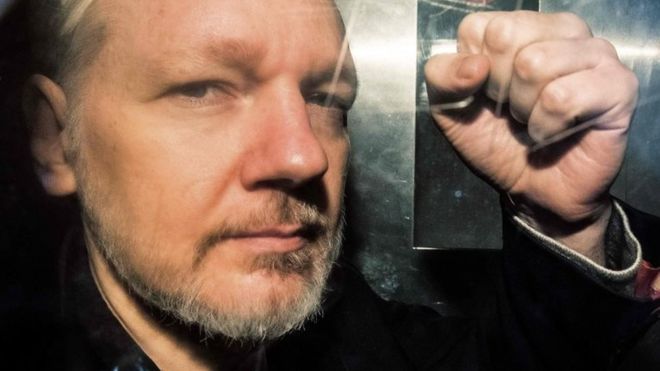United Kingdom’s Home Secretary Sajid Javid certified the extradition request for Wikileaks founder Julian Assange. This is ahead of the extradition hearing for Assange, which will be held on Friday. The United States had officially filed a request of extradition for Assange on Monday, which was promptly certified by the British government.
The certification of the extradition request by the government puts Assange one step closer to being extradited to the US, to stand for trial in an ongoing federal investigation on his alleged complicity in leaking secret government cables. The final decision will be taken by the courts, which can theoretically challenge the request and even deny it.
Assange is currently being indicted by US federal prosecutors on 18 counts of felony under the US Espionage Act. If extradited he will face a total of 175 years in prison while on trial. The aggressive pursuit of the United States in indicting someone for publishing leaked secret documents has set a very dangerous precedent against investigative journalism.
The US has accused Assange of having “conspired” with whistleblower and former US Army intelligence analyst, Chelsea Manning, in the leaking of state secrets. The certification of the extradition comes at a time when concerns for the physical and mental well-being of Julian Assange under British custody has come under scanner from rights activists and international media.
Barely two weeks ago, UN special rapporteur on torture, Nils Melzer, who examined Assange, stated that he has been exposed to “psychological torture”, both while in confinement in the Ecuadorian embassy and in prison. The report by the UN investigator came a day after Assange’s lawyers informed the court that he is too ill and weak to attend his trial, either in person or over a video conference, and had to be moved to the medical ward of the prison he is held.





